Dr. Terror’s House of Horrors (1965)
“There is within each of us a twin destiny: the natural and the supernatural.”
|
Synopsis: |
|
Genres, Themes, Actors, and Directors:
Review: — this disappointing horror anthology fails to live up to its potential. The first vignette — starring Neil McCallum as an architect who discovers the tomb of a werewolf in his ancient familial estate — shows some promise but never really pays off: The second — involving a man (Alan Freeman) whose home is overrun by a killer plant — is, sadly, laughable rather than terrifying: … and the third — following a jazz musician (Roy Castle) who arrogantly steals a sacred song he hears in the West Indies, and is visited by a voodoo curse — is nearly unwatchable, thanks to Castle’s utterly insufferable personality. The fourth vignette — starring the inimitable Christopher Lee as an arrogant art critic whose harsh indictment of an artist (Michael Gough) comes back to haunt him, via an increasingly gruesome disembodied hand that refuses to “die” — is the most satisfying by far: … while the fifth — in which Donald Sutherland discovers he’s married a vampire (Jennifer Jayne) — at least offers an unexpected plot twist at the very end. But the film as a whole never really musters any collective tension, and remains of interest primarily for its historical importance as the first horror “portmanteau” film produced by Amicus Studios (a competitor with Hammer Studios). Click here for an interesting background article on Amicus. Redeeming Qualities and Moments: Must See? Links: |
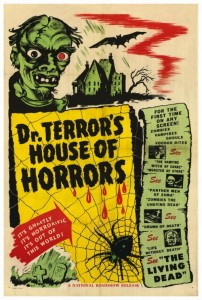
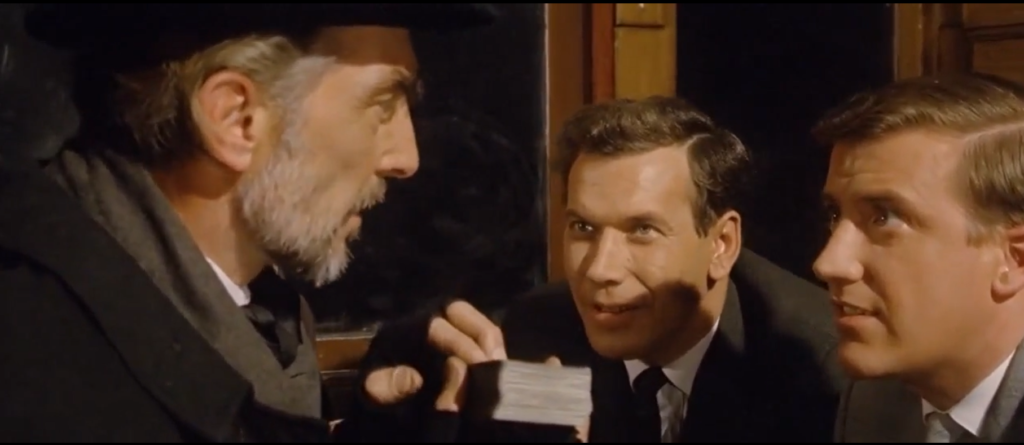
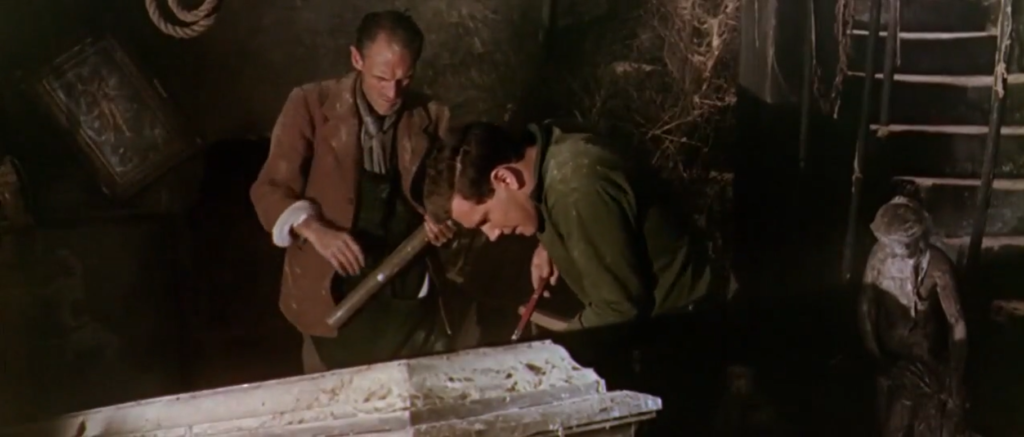
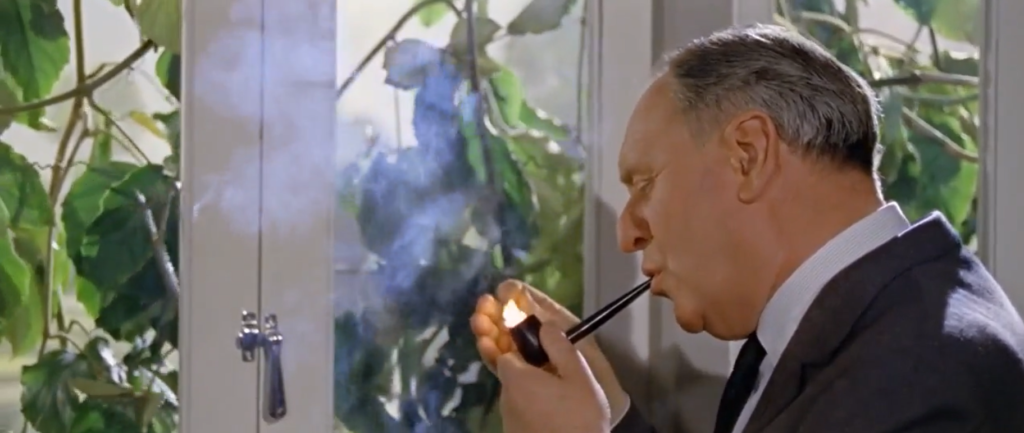
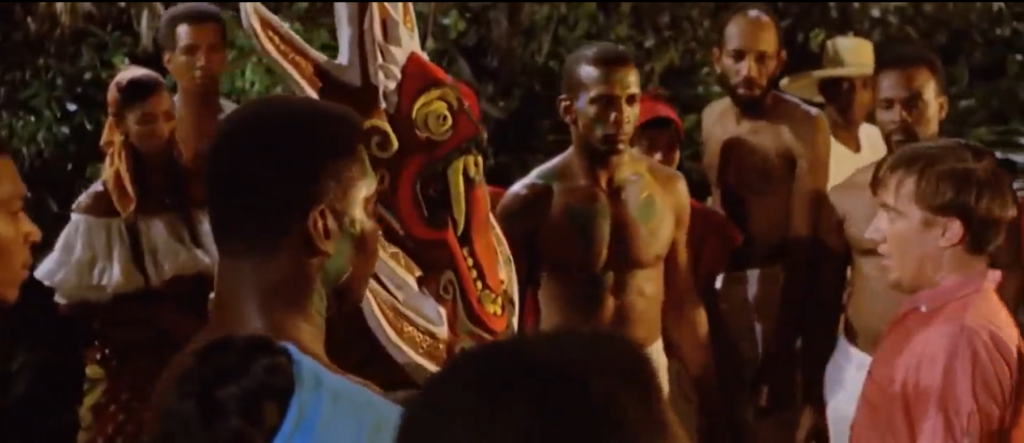
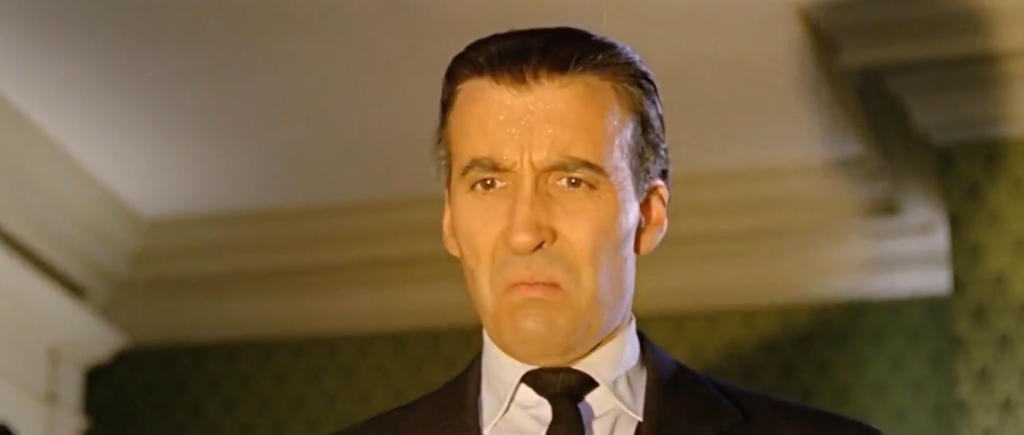
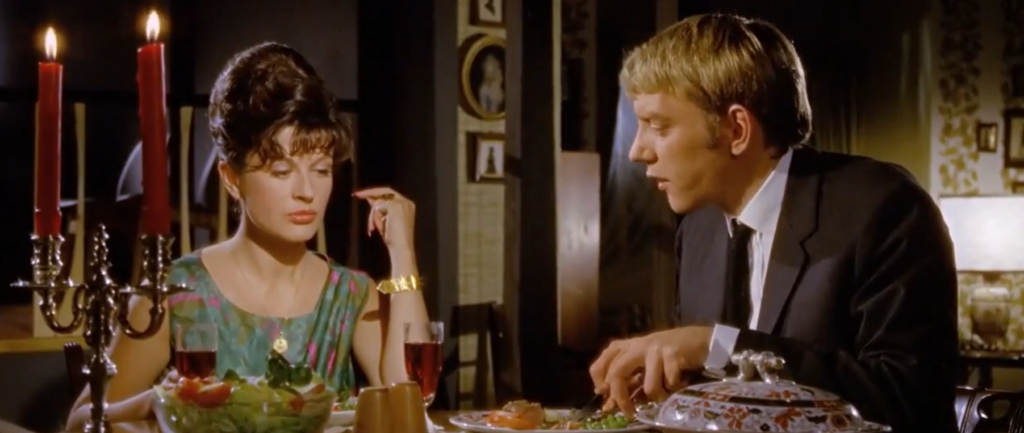
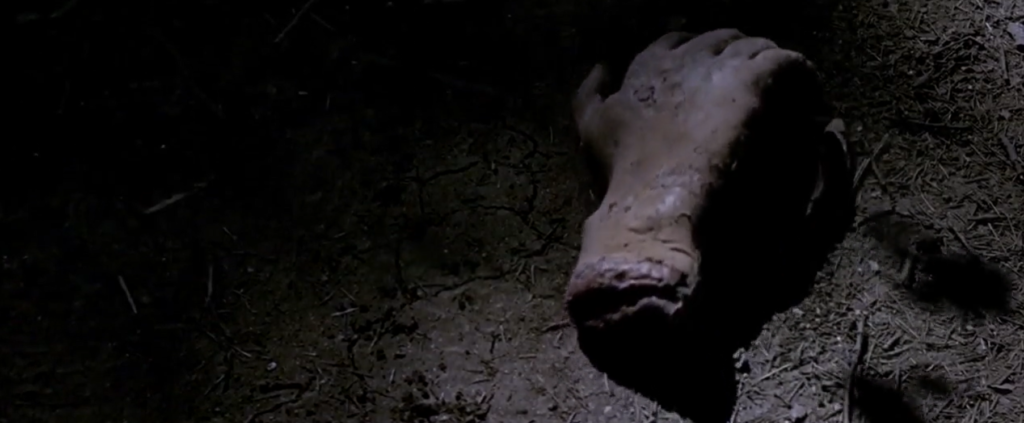
One thought on “Dr. Terror’s House of Horrors (1965)”
Rather in complete agreement here. Having revisited this not that long ago, I lean back with a “Skip it.”
Omnibus films like this were in rather high vogue when I was a kid (and not just for horror, i.e., ‘The Yellow Rolls Royce’, etc.). Such pics were always good for lumping a bunch of (hopefully interesting) actors together for entertainment value. They could be hit-or-miss affairs but, as I recall, there would usually be an attempt to save the best story for last.
Unfortunately, there really is no ‘best’ here. Just prior to re-watching, I recalled (from when I saw the film at age 10) the creepiness of the dealing of the Tarot deck to predict terrible fates. Doesn’t seem so creepy now. In fact, aside from the oddly effective moment sprinkled in here and there, ‘DTHOH’ is tepid. I found it pretty much a waste of time going back to it.
NOTE: I actually still like the idea of omnibus films – perhaps because I like short stories if they’re told in a solid way. The 2006 comedy, ‘The Ten’ (using the ten commandments as its base) is not a successful film overall, but it shows what can still be attempted with the format. (Tho, obviously, Kieslowski’s ‘Decalogue’ wins hands down in its use of the commandments.)